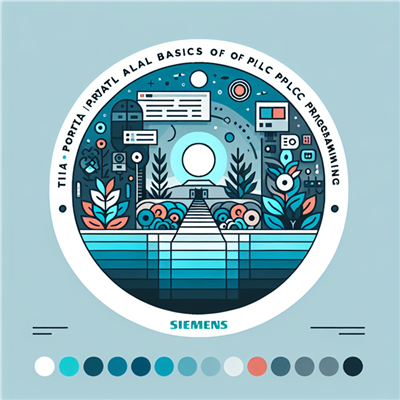
Kubernetes has become the industry standard for container orchestration, making it a vital skill for developers, system administrators, and DevOps engineers. As organizations increasingly adopt Kubernetes to manage their cloud-native applications, professionals with Kubernetes expertise are in high demand. One of the best ways to demonstrate your proficiency with Kubernetes is by obtaining a Kubernetes certification.
If you're new to Kubernetes, the certification path may seem daunting, but with the right preparation and resources, you can successfully navigate it. This blog will provide a step-by-step guide for beginners on how to start your Kubernetes certification journey, offering tips on preparation, the available certifications, and the best study resources.
Why Pursue Kubernetes Certification?
Before diving into the certification path, it’s essential to understand why Kubernetes certification is beneficial. Here are some key reasons to pursue certification:
- Career Advancement: Kubernetes certifications are recognized globally and can help you stand out in the job market, leading to better job opportunities and higher salaries.
- Skills Validation: Certifications validate your expertise and knowledge in Kubernetes, making it easier to gain the trust of potential employers.
- Professional Credibility: Being certified shows you are dedicated to learning and improving your Kubernetes skills, increasing your credibility as a cloud-native professional.
- Industry Demand: Kubernetes has become a foundational tool in modern IT infrastructure, so acquiring certification can make you a valuable asset to any organization moving to cloud-native environments.
With these benefits in mind, let's dive into how to get started with your Kubernetes certification journey.
Step 1: Understand the Kubernetes Certification Path
The Kubernetes certification path offers three main certifications, each catering to different roles and skill levels. Here’s a brief overview of each:
-
Certified Kubernetes Administrator (CKA):
- Target Audience: System administrators, DevOps engineers, and anyone responsible for managing Kubernetes clusters.
- Focus: The CKA exam tests your ability to install, configure, and manage Kubernetes clusters. It covers topics such as cluster architecture, networking, storage, and troubleshooting.
- Difficulty Level: Intermediate to advanced.
- Certified Kubernetes Application Developer (CKAD):
- Target Audience: Developers who build, deploy, and manage applications on Kubernetes.
- Focus: The CKAD exam focuses on the development side of Kubernetes. It includes topics like configuring applications, understanding services and networking, and working with Kubernetes resources such as pods, deployments, and config maps.
- Difficulty Level: Intermediate.
- Target Audience: Security professionals responsible for securing Kubernetes environments.
- Focus: The CKS exam tests your knowledge of Kubernetes security, including securing cluster configurations, network policies, role-based access control (RBAC), and container security.
- Difficulty Level: Advanced.
- Certified Kubernetes Security Specialist (CKS):
As a beginner, most people start with either the CKA or CKAD depending on their focus—administration or development. It’s important to choose a certification based on your career goals and the role you want to pursue in the cloud-native space.
Step 2: Learn the Basics of Kubernetes
Before attempting any certification, it’s essential to have a strong foundation in Kubernetes basics. Here’s a roadmap to help you get started:
1. Understand Containers and Docker
Kubernetes manages containerized applications, so before jumping into Kubernetes, you need to understand how containers work. Learn the basics of containers, container images, and container runtimes like Docker.
2. Familiarize Yourself with Kubernetes Architecture
Kubernetes has a complex architecture made up of several components that work together to manage containers at scale. As a beginner, familiarize yourself with the following concepts:
- Kubernetes Cluster: A cluster consists of a control plane (responsible for managing the state of the cluster) and worker nodes (where applications are deployed).
- Pods: The smallest deployable units in Kubernetes, which encapsulate containers.
- Services: Used to expose Kubernetes applications to the outside world or other components within the cluster.
- Deployments: Controllers that manage application lifecycle, handling tasks like rolling updates and scaling.
3. Get Hands-On Experience
The best way to learn Kubernetes is by practicing. Set up a local Kubernetes environment using Minikube or K3s and experiment with deploying simple applications, creating pods, and exposing services. Hands-on experience will give you a deeper understanding of how Kubernetes works.
Step 3: Choose Your Certification and Create a Study Plan
Once you're comfortable with the basics, decide which certification you want to pursue. If you are interested in system administration, the CKA is the ideal starting point. If you are a developer, the CKAD is more suitable. Here’s how you can approach your study plan:
1. Break Down the Exam Curriculum
Each certification has a defined curriculum and exam guide provided by the Cloud Native Computing Foundation (CNCF). Go through the official documentation to understand the exam topics, weightage, and format. For example, the CKA exam includes topics like:
- Cluster architecture, installation, and configuration (25%)
- Workloads and scheduling (15%)
- Services and networking (20%)
- Storage (10%)
- Troubleshooting (30%)
For the CKAD exam, the focus will be on developing and managing applications in Kubernetes, with topics like:
- Core concepts (13%)
- Multi-container pods (10%)
- Observability (18%)
- Services and networking (13%)
- Configuration (18%)
- State persistence (8%)
2. Set Study Goals
Establish clear goals for each week or month. Dedicate time to studying individual topics, working on hands-on labs, and reviewing Kubernetes concepts. Allocate enough time for practice exams and mock tests toward the end of your preparation.
Step 4: Leverage Study Resources
To prepare for the certification exams, you’ll need access to quality study materials and resources. Below are some highly recommended resources to help you succeed:
1. Official Kubernetes Documentation
The Kubernetes documentation is a must-read for anyone preparing for Kubernetes certification. It provides in-depth explanations of all Kubernetes components, features, and best practices.
2. Online Courses
- Udemy: There are highly rated courses on Udemy for both CKA and CKAD. One popular course is "Kubernetes for the Absolute Beginners" by Mumshad Mannambeth, which is ideal for those just starting.
- Kubernetes Academy by VMware: This platform offers free Kubernetes training, including videos and hands-on labs.
- A Cloud Guru: Another great platform offering comprehensive CKA and CKAD courses.
3. Practice Labs
Hands-on labs are crucial for certification prep. You can use platforms like Katacoda, Play with Kubernetes, and Kubernetes by Example to practice real-world scenarios.
4. Books
If you prefer learning through books, consider the following:
- Kubernetes Up and Running by Kelsey Hightower, Brendan Burns, and Joe Beda.
- The Kubernetes Book by Nigel Poulton. These books cover essential Kubernetes concepts and practical use cases.
5. Practice Exams
Simulating the real exam environment is essential to your success. Platforms like Killer.sh offer practice exams that mimic the real certification tests, helping you become familiar with the format and time constraints.
Step 5: Take the Certification Exam
After completing your preparation and practice exams, you’ll be ready to take the real certification test. The Kubernetes exams are conducted online and proctored remotely, so you can take them from anywhere with a stable internet connection.
Tips for the Exam:
- Time Management: Each exam has a strict time limit, so practice managing your time effectively during the test. Work on the easiest tasks first and return to more complex ones later.
- Use the Documentation: You can access the official Kubernetes documentation during the exam, so use it to clarify any doubts.
- Stay Calm: The exam can be challenging, but staying calm and focused will help you perform better.
Step 6: What to Do After Certification?
Congratulations! After passing your Kubernetes certification exam, you’re officially certified. But your journey doesn’t end here. Kubernetes is a rapidly evolving technology, so it’s essential to stay updated with new features and advancements.
Here are a few steps you can take after getting certified:
- Stay Involved in the Community: Join Kubernetes user groups, attend conferences, and participate in forums like Slack or Reddit to keep learning from the Kubernetes community.
- Pursue Advanced Certifications: If you passed the CKA or CKAD, consider taking the CKS (Certified Kubernetes Security Specialist) exam to further specialize your skills.
- Apply Your Skills: Use your new skills in real-world projects or contribute to open-source Kubernetes projects on GitHub.
Conclusion
Starting your Kubernetes certification journey as a beginner may seem overwhelming, but with the right strategy, resources, and dedication, it’s an achievable goal. Focus on understanding the basics, practice as much as you can, and take advantage of the numerous study materials available online. Whether you pursue the CKA, CKAD, or CKS, earning a Kubernetes certification will not only enhance your skills but also open doors to new and exciting career opportunities in the cloud-native world.
As a leading IT training company, Koenig Solutions provides certifications in top technology courses, including Kubernetes. Whether you're a beginner or an experienced professional, Koenig's comprehensive Kubernetes training courses are designed to equip you with the skills you need to excel in your career. Get started on your Kubernetes certification path with Koenig Solutions today.






Certification.jpgM.jpg)
COMMENT